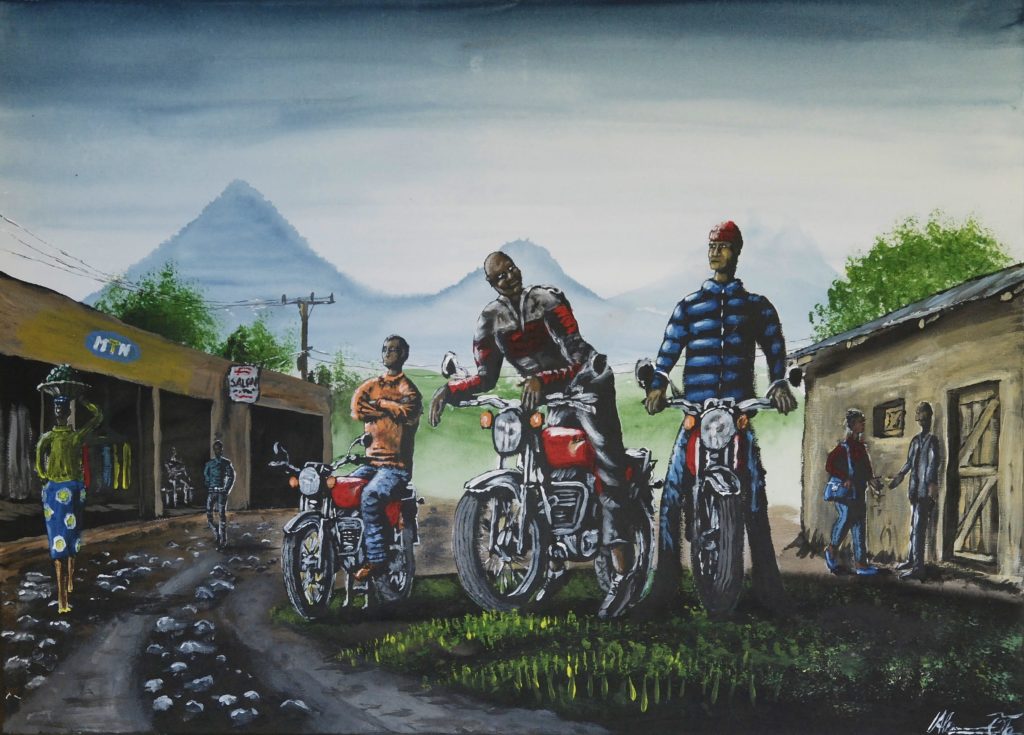
Alexander Öbom graduated from our international master program in cultural anthropology. His acrylic paintings presented here, inspired by local artistry, offers a unique way of representing and describing the field. His thesis is available online here
Blog editors comment
Motorcycle-taxi drivers in the district of Kisoro, in southwestern Uganda, talk about “development” which takes place in their society, but which they do not perceive as their development. Rather, it is a development carried out by others, mainly for others, while these drivers and many other locals feel that they only get the leftovers from it all.
A small network of asphalt roads has been constructed in the district since 2007, and the place has become a tourist destination for a growing number of foreign visitors who travel to the area´s national parks to catch a glimpse of gorillas. Simultaneously, new service jobs, in hotels, shops and on motorcycles, have popped up.
During my fieldwork in the area, in 2017, many motorcycle drivers described how the new roads were constructed by foreigners, local businessmen or unspecified others. These roads were also sparsely trafficked, and mostly by trucks transporting goods and by tourists, rather than by locals. Evictions of local people from national parks and establishment of new hotels had benefited foreigners, while being largely disadvantageous to locals like these drivers themselves.
Motorcycles were imported from India on the new roads. The so-called ‘Boda Boda’ motorcycle-taxi system was often portrayed as one of all these leftovers – a poor job and a poor taxi service which had recently been established in the area instead of better jobs and transport alternatives, which were only available for people with lots of money. The purpose of my painted acrylic pictures is to illustrate these experiences visually without disclosing identities. These illustrations have given me the posibility of adding and combining issues from a large number of photos and also working with feelings that is rarely contained in a photo.
People in Kisoro had dreams and clear ideas about what they wanted, not seldom derived from information and inspiration reaching them through screens – on smartphones and TV:s – screens which made an external world which seemed to prosper very visible. But even if inspiration flowed into the area, opportunities did not follow. A real development should provide industrial jobs, replace subsistence farming, and eradicate poverty, in many Boda Boda drivers opinions, but this development had mostly brought economic inequality, and the relatively few and not very well paid informal jobs which it had provided for ordinary people, meant many households nonetheless depended on subsistence farming, as a complement to these jobs, with an ever-growing competition for the land, as a result. And most roads which locals used extensively, walking, or riding on a Boda Boda, between their farms and their jobs, were left unpaved and in poor condition. It all resembled scholarly descriptions of how various so-called developments in the global South have become very uneven in the era of economic neoliberalism (see, for example, Leys 2005:111-116).
Some people had worked as Boda Boda operators for about a decade, but when they started, they used bicycle-taxis, and motorcycles were rare. A few of them said the recent shift to motorcycles had had a negative effect on their personal economy, as motorcycles are more expensive to buy and to run. Their price implied that many operators instead had to rent their vehicles, and pay substantial weekly fees to the motorcycle owners. Although many saw the shift to motorcycles as a step toward modernity, and although most customers who I talked to portrayed it as a positive change, many drivers framed it as a bad one. Yet still as customers prefered motorcycles, drivers felt they had no choice but to use them. It has been contended that “the Boda Boda transportation system allows rural and remote populations to connect with a broader social and economic network” (Gamberini 2014), but many people in Kisoro district felt that these vehicles, as a result of economic restraints, had not provided them with much new mobility. Glorification of bicycle times was only one of many responses and examples of nostalgia which circulated. Other nostalgic stories were related to the recent shift from high quality mobile phones to low-quality budget phones, the district’s deteriorated fishing industry and the liquidation of the country’s public transport systems in favour of informal transportation. This resonates with anthropologist James Ferguson’s use of the term abjection, which refers to people feeling that they have lost something valuable in society which they had in the past (Ferguson 1999:237-238), and it resembles nostalgic feelings found in other African settings (Trovalla & Trovalla 2015).
It would be wrong to say that there existed only negative attitudes toward the transformations taking place – many people appreciated the recent changes – but ambivalence was common, and a feeling of being partially excluded from Kisoro’s development, partly included but in not so beneficial ways, were present among many. Unfortunately, this does not seem to be a very unique feature; as many scholars have pointed out, people in various places, not least in Africa, often feel somehow excluded from a modernity of others (Mains 2007, Utas 2003:151, 252). As Kisoro’s development seemed mostly focused on other people it was perceived as highly limited, but not only limited – in a sense that more of the same would be a solution – it was also perceived as a distorted form of development.
A lack of alternatives had brought many men to the motorcycle-taxi job, and as a result, drivers experienced evermore competition, which implied that they had to spend enormous amounts of time just waiting for customers, while simultaneously waiting for a development for them – which they hoped would come, eventually – rather than the development for somebody else, which they currently experienced.
Alexander Öbom has a background in journalism. He is currently a self-employed artist and a research assistant at the Swedish University of Agricultural Sciences (SLU). He has traveled extensively in Uganda and neighboring Rwanda during the last seven years.
Litterature
Ferguson, James 1999: Expectations of Modernity: Myths and Meanings of Urban Life on the Zambian Copperbelt. Berkeley: University of California Press
Gamberini, Gian Luca 2014. Boda Boda: The Impact of A Motorbike Taxi Service in Rural South Uganda. Helvedius Group of Columbia University.
Leys, Colin 2005 [1996]. The Rise and Fall of Development Theory. In Edelman, Marc & Haugerud, Angelique (eds.) 2005. The Anthropology of Development and Globalization: From Classical Political Economy to Contemporary Neoliberalism. Oxford: Blackwell.
Mains, Daniel 2007. Neoliberal Times: Progress, Boredom and Shame among Young Men in Urban Ethiopia. American Ethnologist 34:4, 659-673.
Trovalla, Eric & Trovalla, Ulrika 2015. Infrastructure as a divination tool: Whispers from the grids in a Nigerian city. City 19:2-3.
Utas, Mats 2003. Sweet Battlefields: Youth and the Liberian Civil War. Dissertations in Cultural Anthropology. Uppsala University.
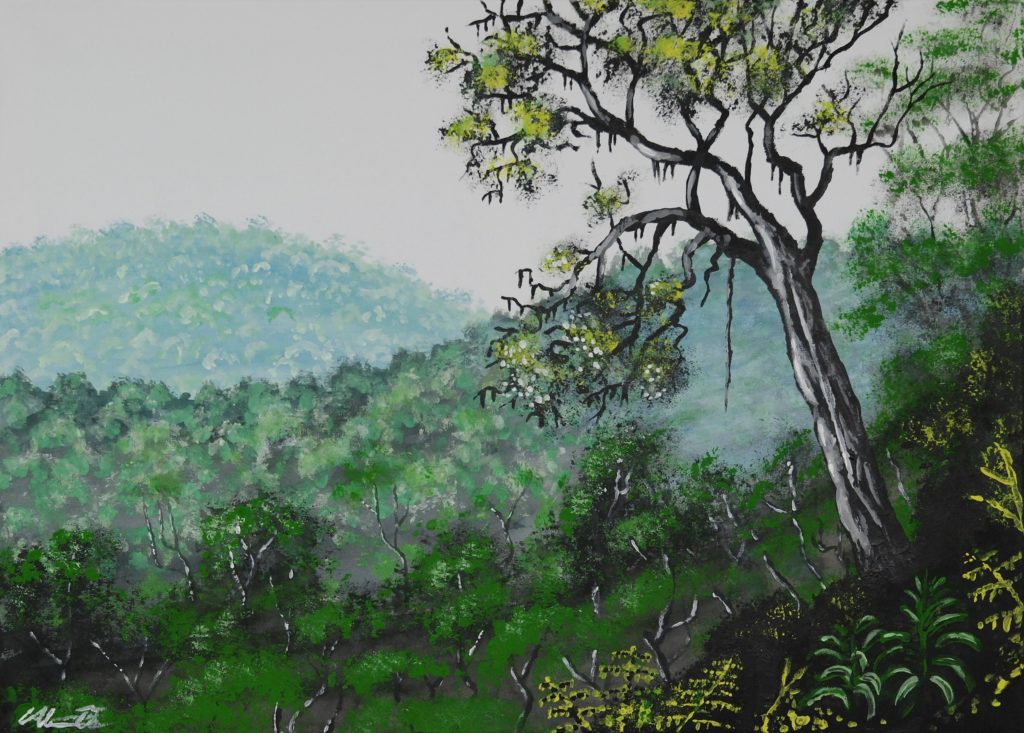
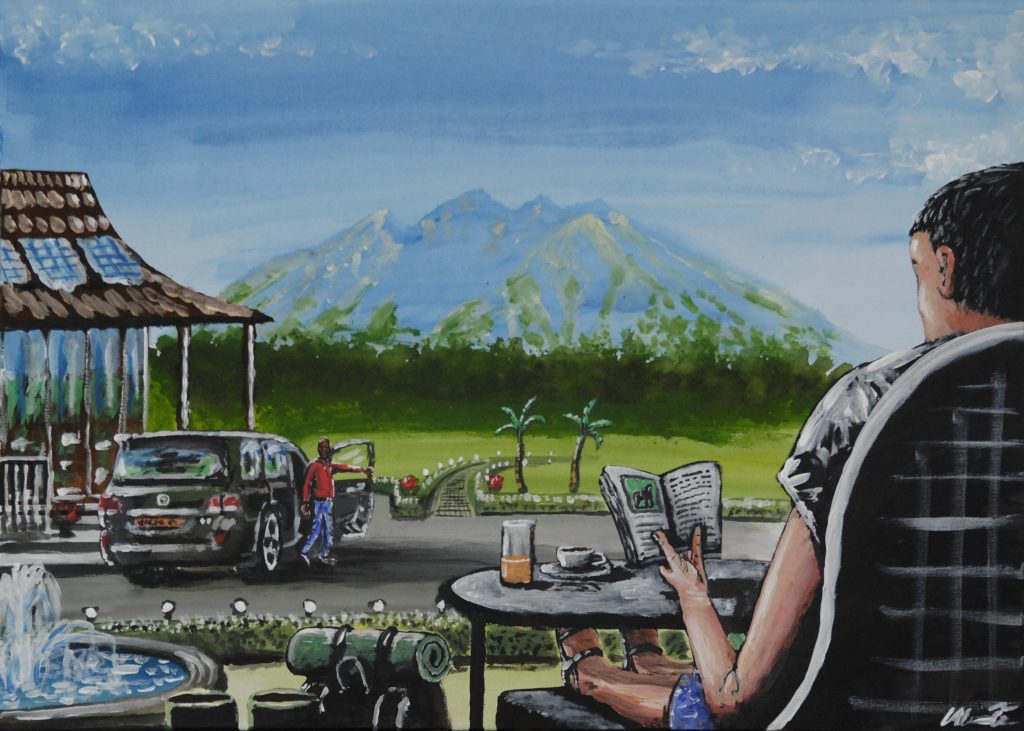
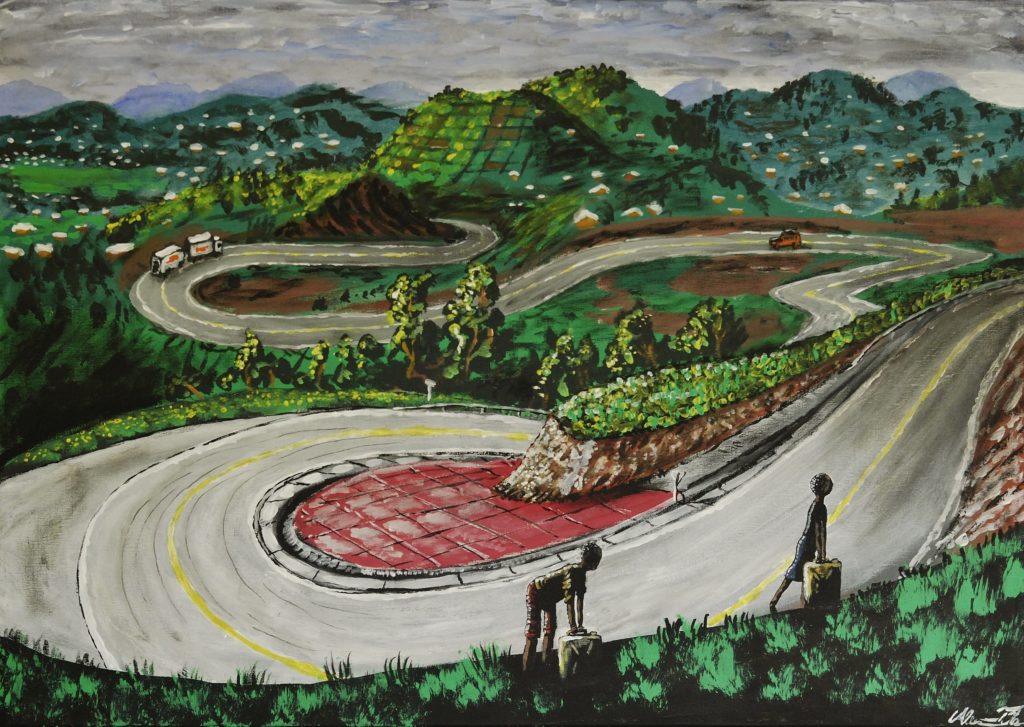
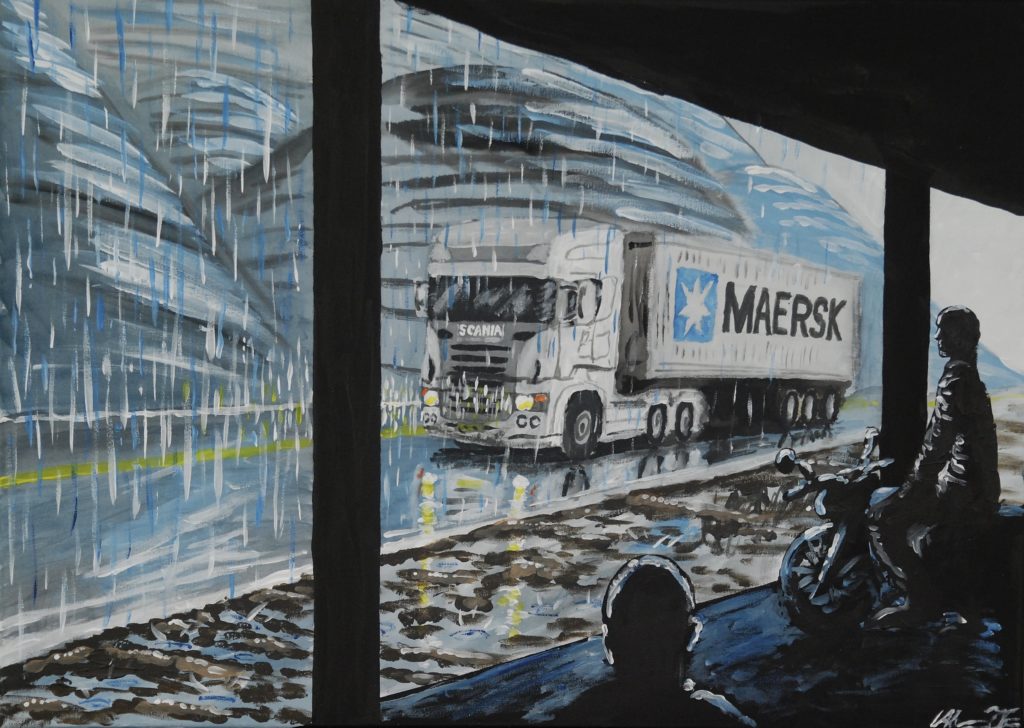
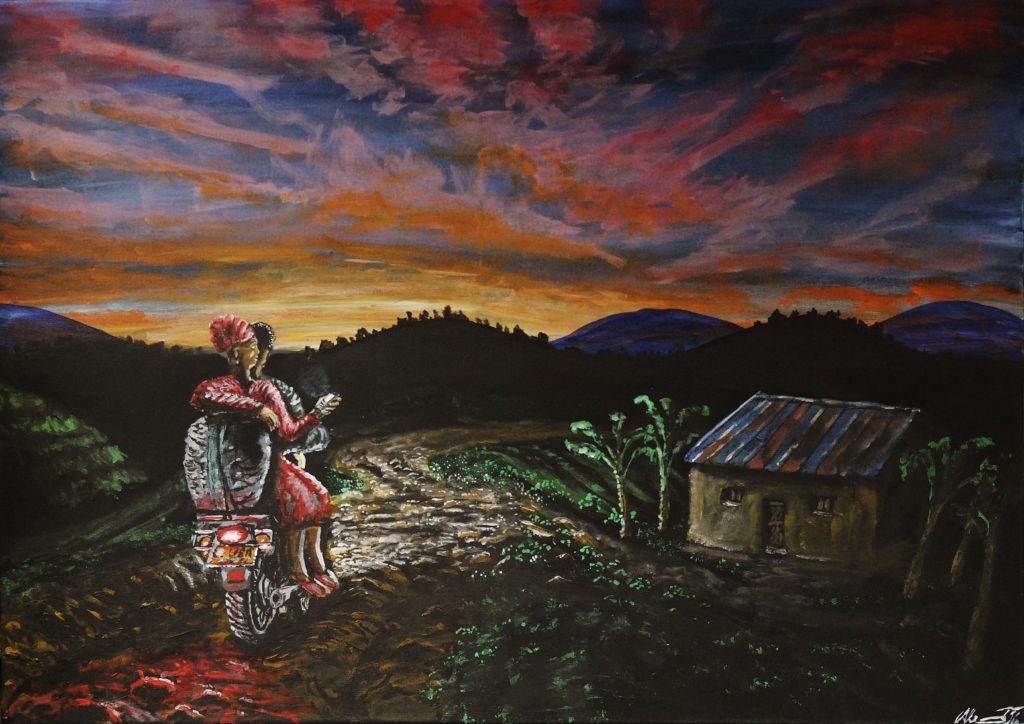
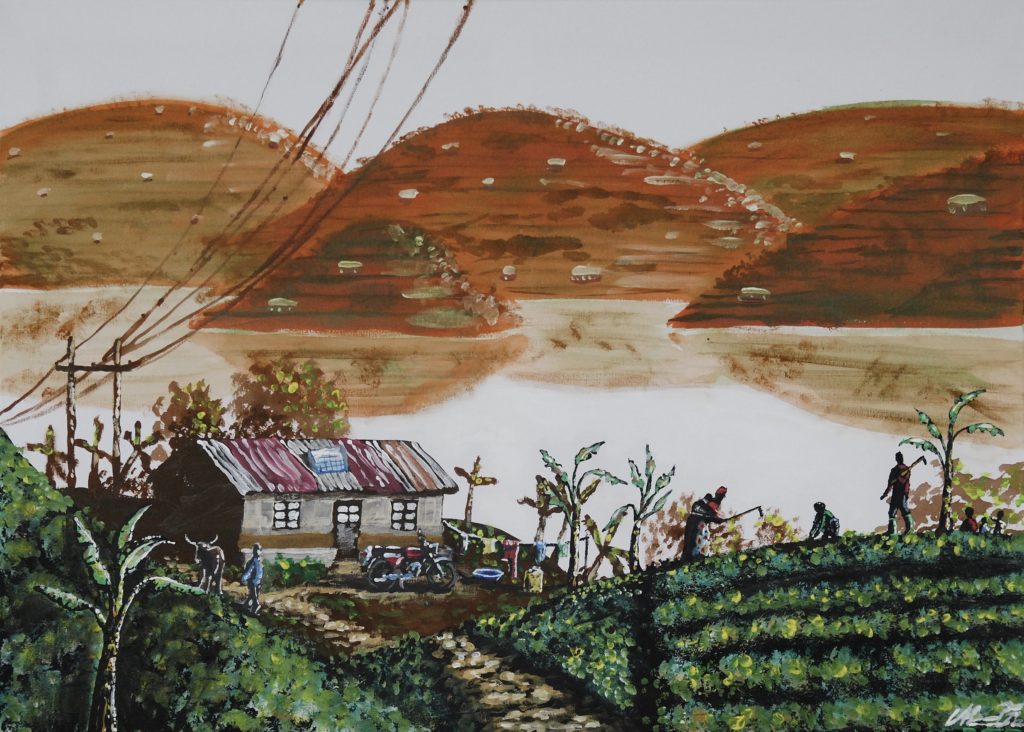
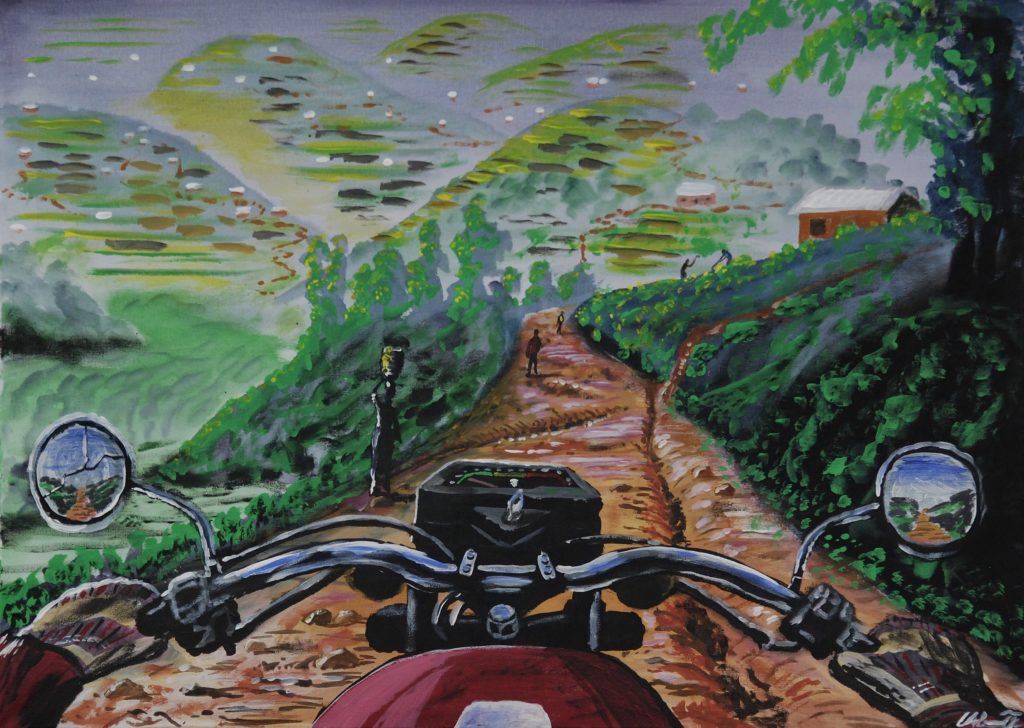
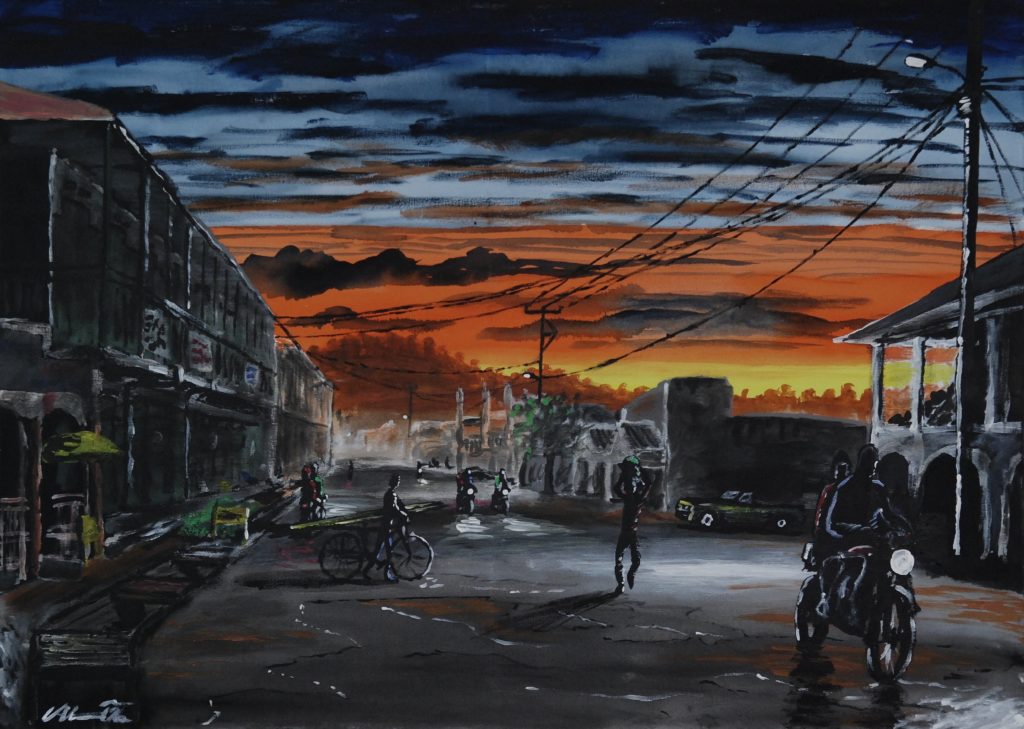
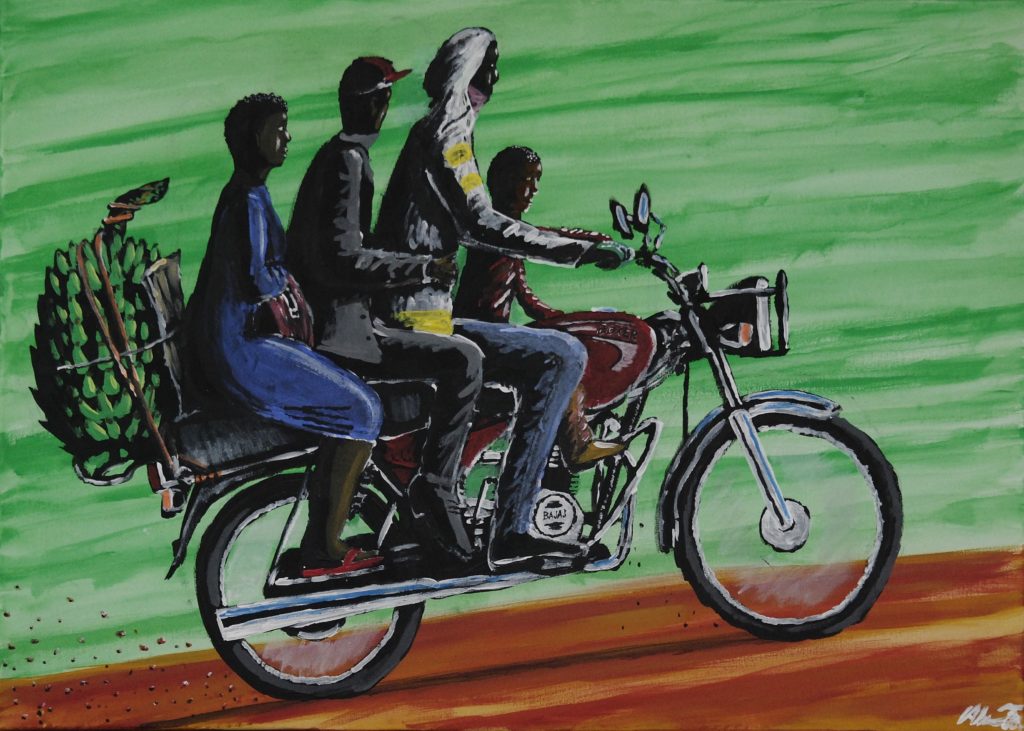
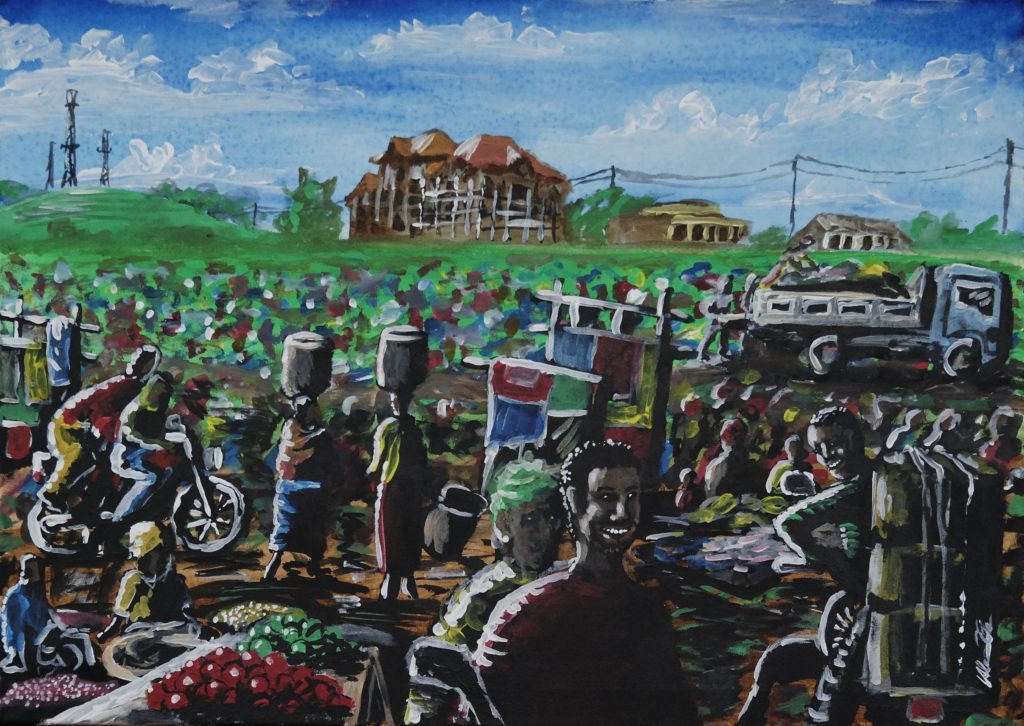
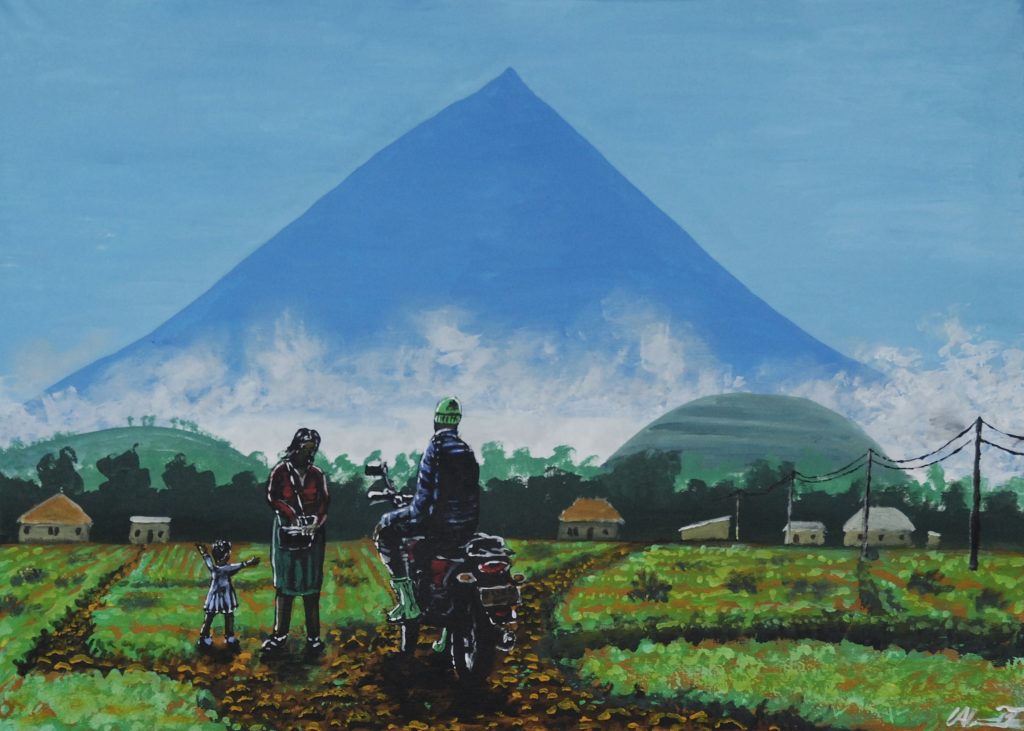
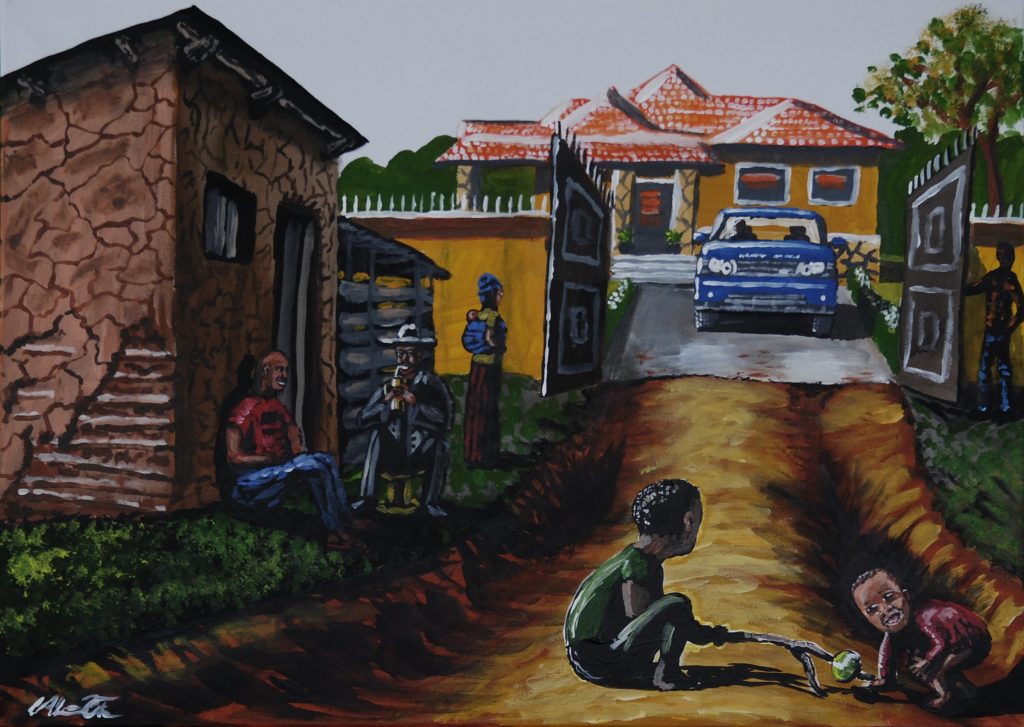
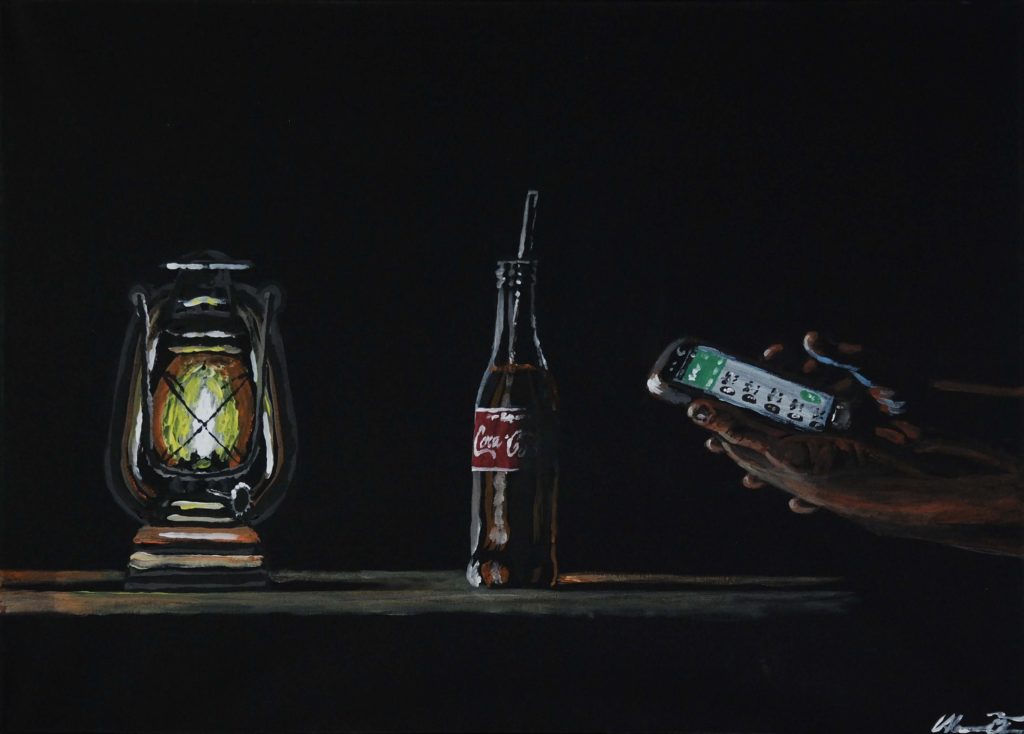
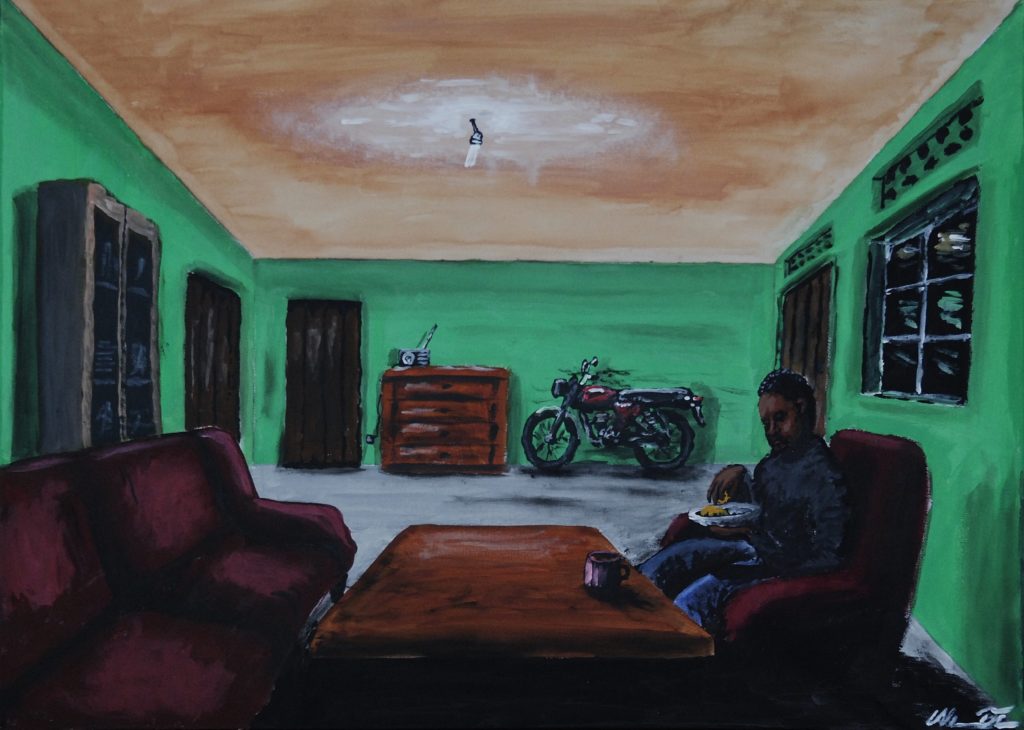
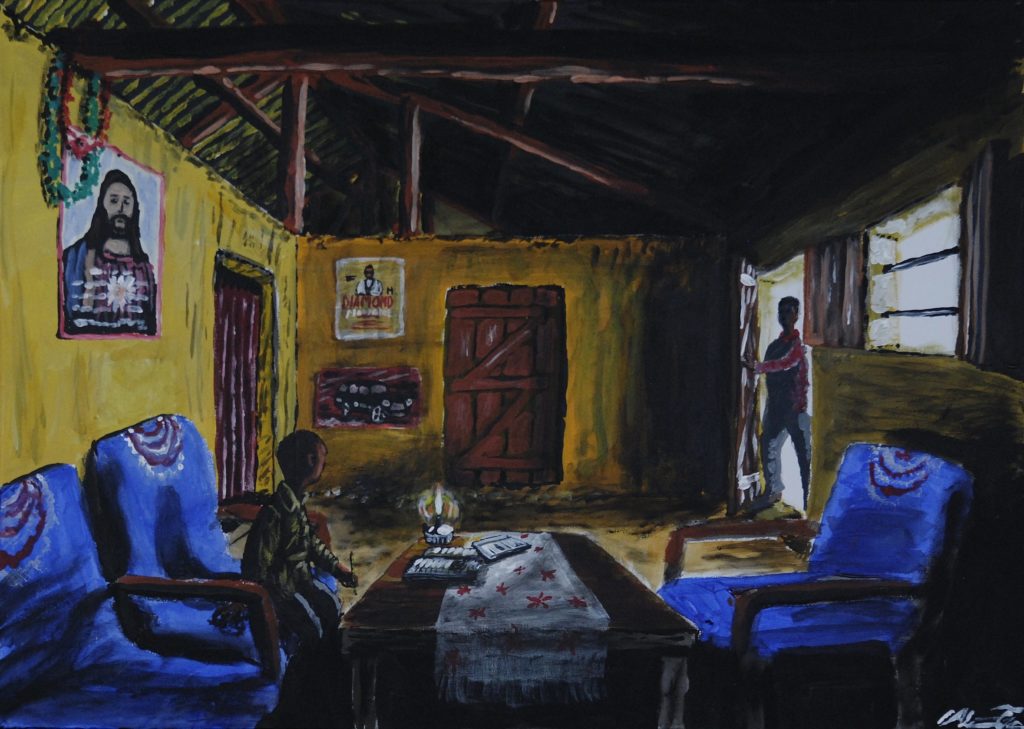
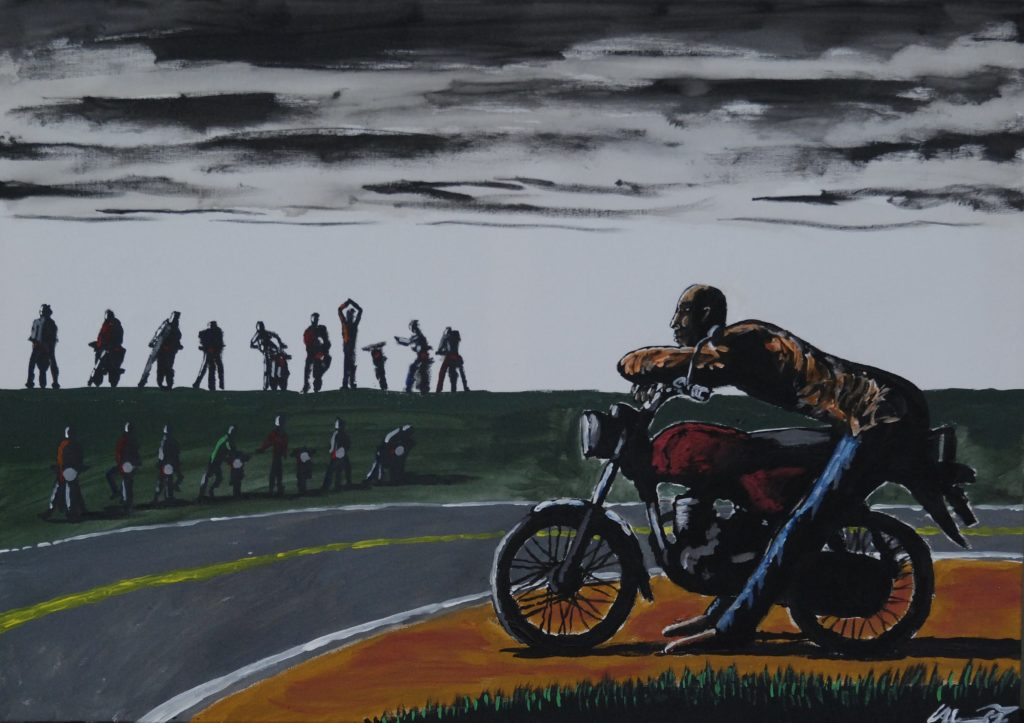
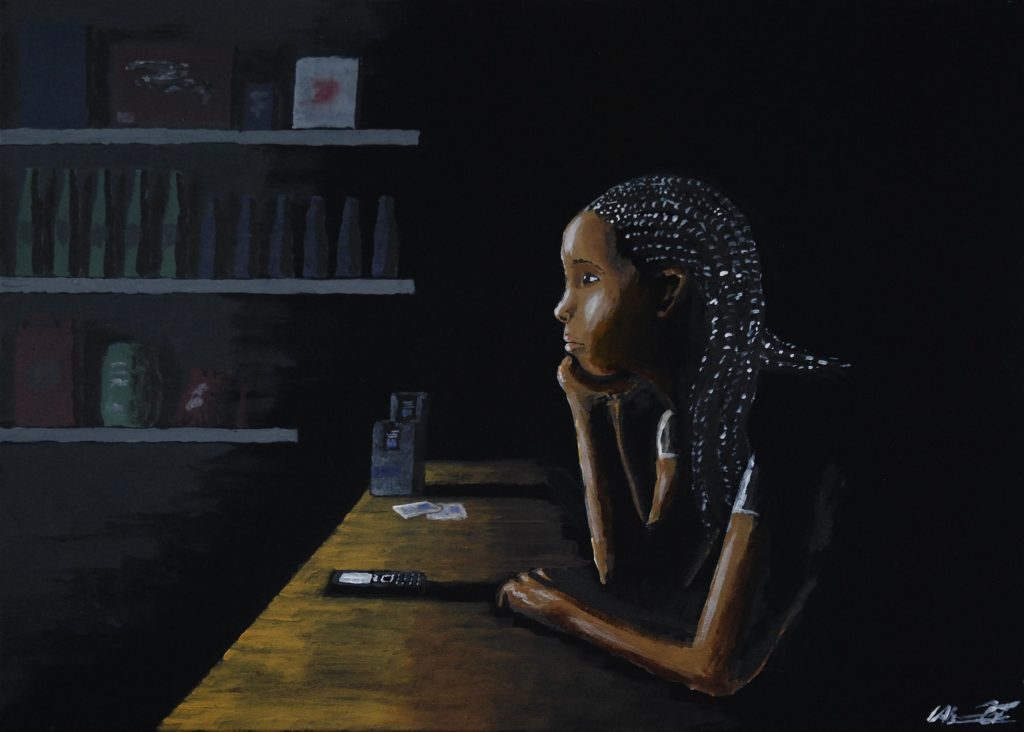
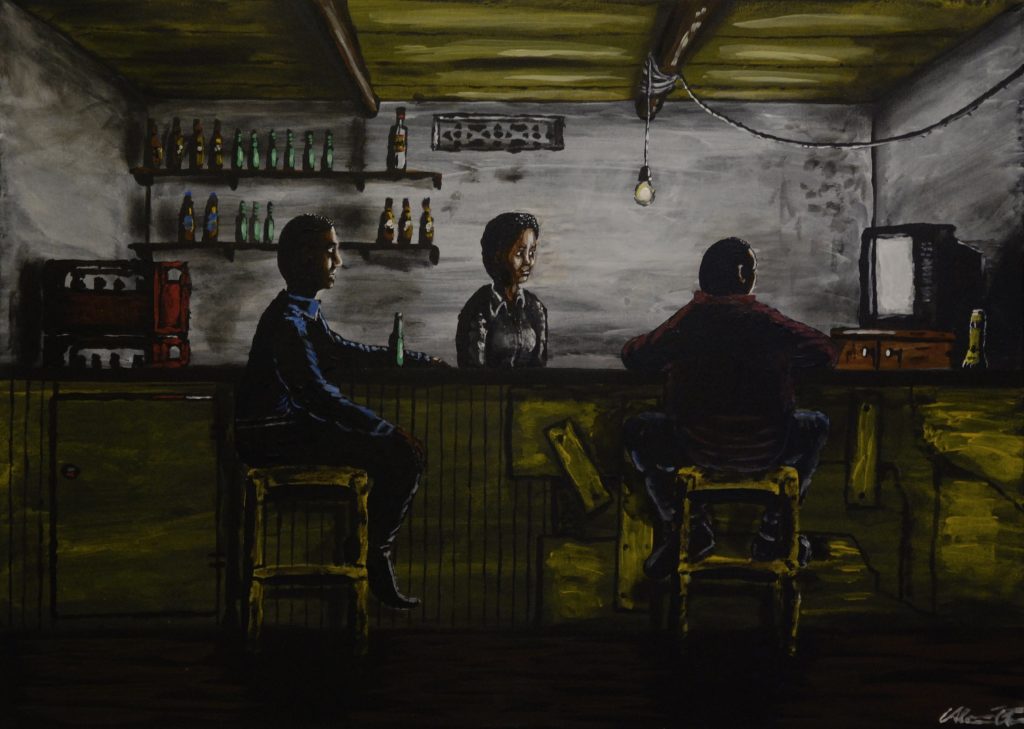
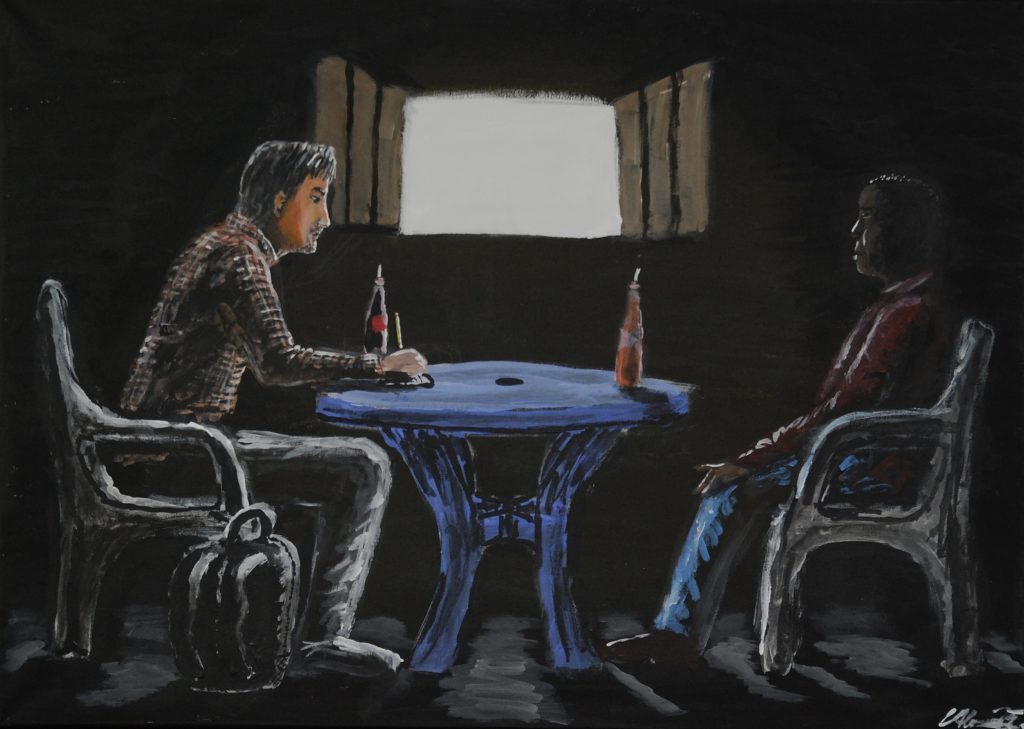
November 8, 2024 at 10:14 am
Awaiting moderation
Что необходимо знать при покупке номера для получения смс
Виртуальные номера для получения СМС стали очень популярной и востребованной услугой в связи с растущей и развивающейся технологической базой для общества. В этой статье мы рассмотрим преимущества, особенности и нюансы покупки виртуальных номеров, а также рассмотрим, как это можно сделать с помощью криптовалюты.
Какие преимущества и возможности дает виртуальный номер Турции
Виртуальные номера телефона позволяют пользователям принимать и отправлять сообщения, не имея физической SIM-карты. Такая возможность максимальна удобна для тех кто хочет пройти какую то регистрацию и при этом остаться совершенно анонимным. Виртуальный номер телефона Турции не только раскрывает новые горизонты для пользователей в этом регионе, но и предоставляет ряд преимуществ.
Как купить номер для регистрации
Приобретение виртуального номера для регистрации на различных платформах может показаться сложным, но если следовать определенным шагам, этот процесс станет гораздо проще.
Многие сервисы предлагают разные методы оплаты при покупке виртуального номера, включая использование криптовалют.
Виртуальный номер за криптовалюту: уникальные возможности для пользователей
Все большую популярность при работе с временными виртуальными номерами является возможность купить виртуальный номер за криптовалюту. Возможность купить виртуальный номер за криптовалюту дает большое количество преимуществ:
– Анонимность: многие пользователи выбирают криптовалюту именно из-за повышения уровня конфиденциальности. Оплата услуг в виртуальных номерах с использованием биткойнов или других валют позволяет избежать раскрытия личной информации.
– Немалую долю удобства при покупке виртуального номера за криптовалюту в Турции составляет быстрая схема расчета, это порой очень выгодно по сравнению с обычными способами оплаты купить китайский номер телефона
В завершении хотелось бы отметить моменты почему необходимо купить виртуальный номер в Турции
Купить временный виртуальный номер особенно выгодно, это помогает открывать новые горизонты для таких моментов как личные и конечно для бизнеса. Осуществление покупки временного номера для регистрации дает вам шанс оставаться анонимным в любой ситуации. А оплата услуг с помощью криптовалюты добавляет еще больше свободы и удобства в этот процесс. Подчеркивая все вышеизложенное, вы можете быть уверены в том, что купить виртуальный временный номер это очень выгодно, а не просто дань моде.